


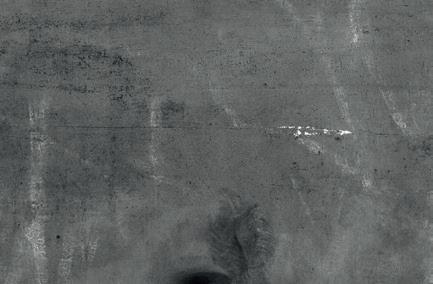

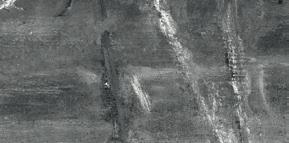
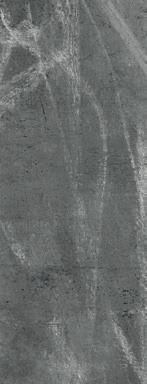

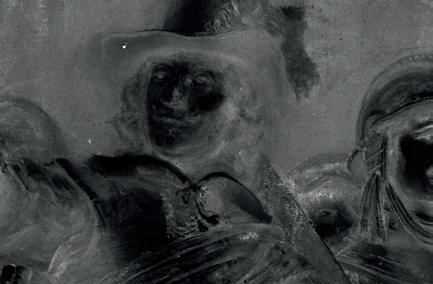
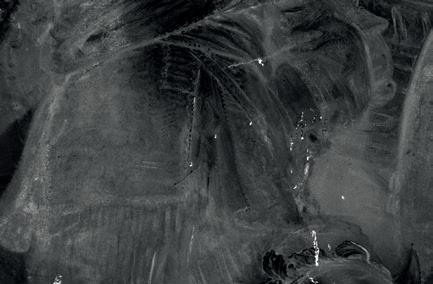
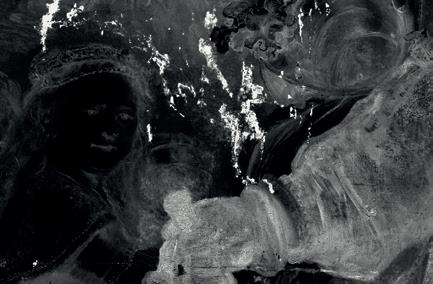
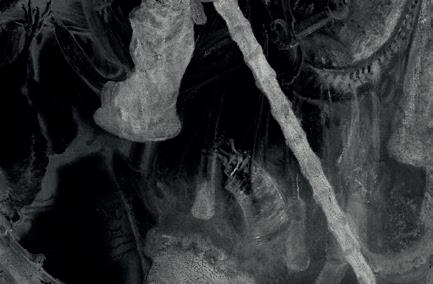
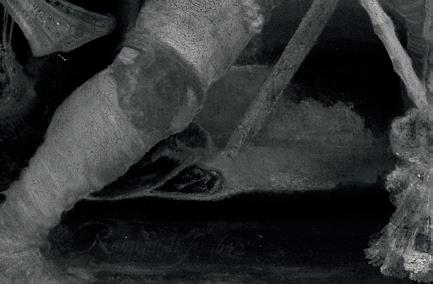
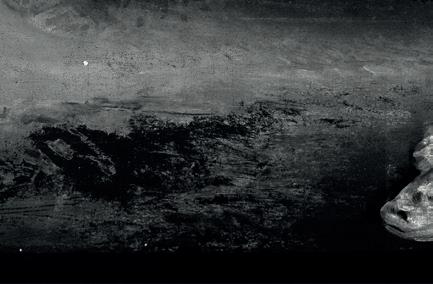




















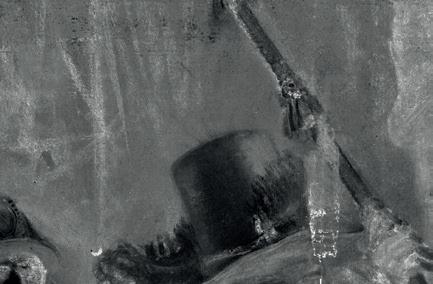
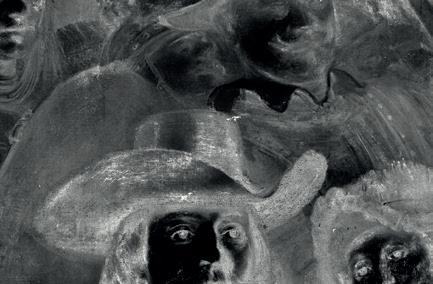
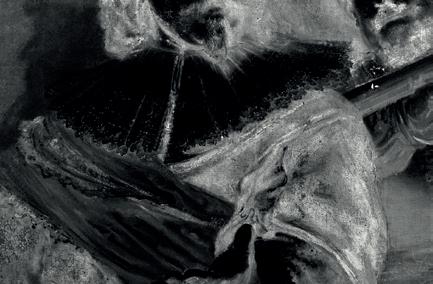
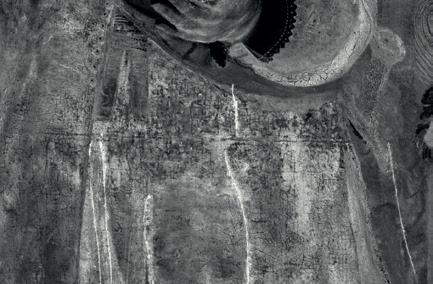
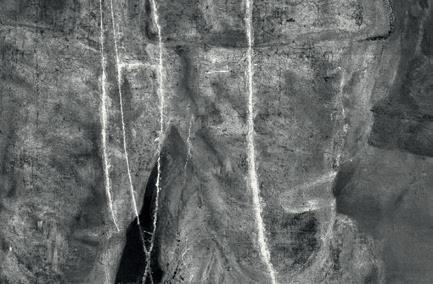
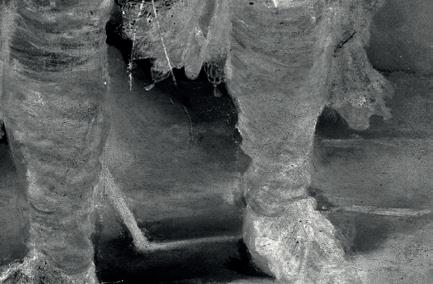

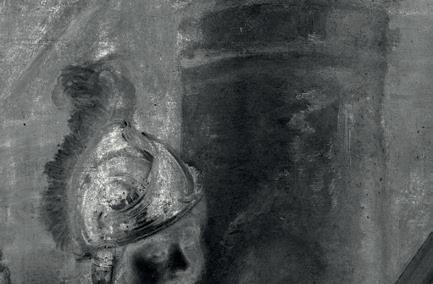
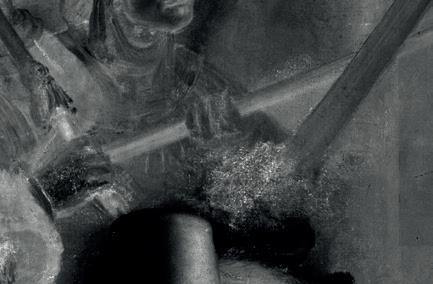
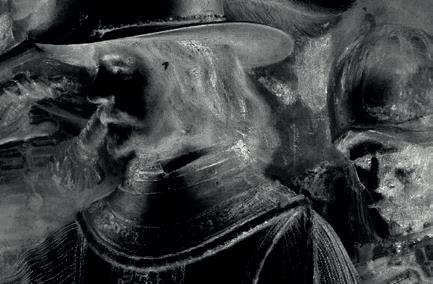
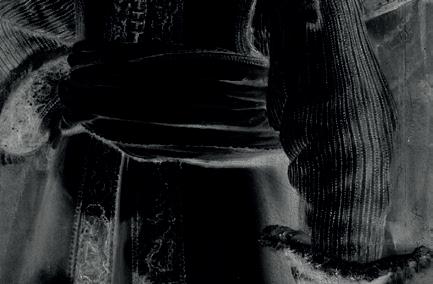
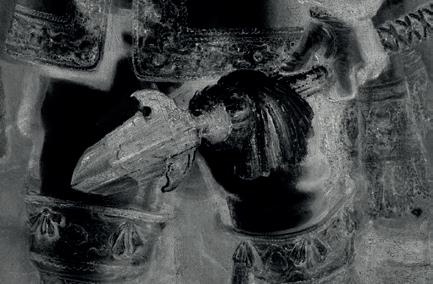
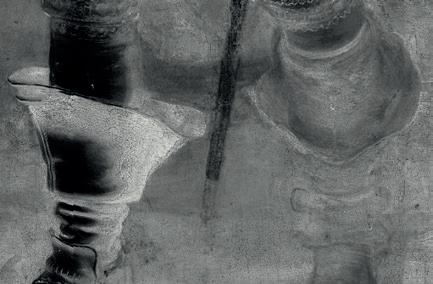




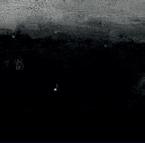


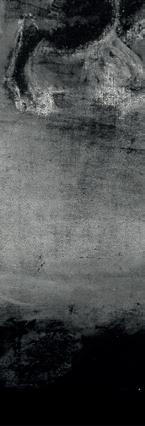
Terry Pratchett was the acclaimed creator of the global bestselling Discworld series, the first of which, The Colour of Magic, was published in 1983. In all, he was the author of over fifty bestselling books which have sold over 100 million copies worldwide. His novels have been widely adapted for stage and screen, and he was the winner of multiple prizes, including the Carnegie Medal. He was awarded a knighthood for services to literature in 2009, although he always wryly maintained that his greatest service to literature was to avoid writing any.
www.terrypratchettbooks.com
Rob Wilkins worked with Terry Pratchett for more than twenty years, first as his personal assistant, and later as his business manager. He now, in partnership with Terry’s daughter Rhianna, manages the Pratchett literary estate and Terry’s production company, Narrativia. He is the author of A Life With Footnotes – the multi-award winning official biography of Sir Terry.
Professor David G. Lloyd FTSE FRSC is a Dublin-born chemist, living in Adelaide, where he is the Vice Chancellor and President of the University of South Australia. David’s entanglement with Terry began in 2008 when each other’s universities (Trinity College Dublin and the Unseen University) reciprocally bestowed honorary doctorates on the pair, with David later going one up to award Terry another hon doc, from UniSA, in 2014. Terry posthumously significantly upped the ante in 2016 by making David a member of the Venerable Order of the Honeybee. Professor Lloyd considers this work to be his next move in a perpetual game of mutual ennoblement.
Darryl Jones is Professor of Modern British Literature and Culture, Trinity College Dublin. As Head of the School of English, he found himself in the unenviable position of being Professor Sir Terry Pratchett’s boss.
Foreword by Rob Wilkins
Introduction and Notes by David Lloyd and Darryl Jones
PENGUIN BOOKS
UK | USA | Canada | Ireland | Australia
India | New Zealand | South Africa
Penguin Books is part of the Penguin Random House group of companies whose addresses can be found at global.penguinrandomhouse.com
Penguin Random House UK , One Embassy Gardens, 8 Viaduct Gardens, London SW 11 7BW
penguin.co.uk
First published in Great Britain by Doubleday an imprint of Transworld Publishers 2002
Corgi edition published 2003, reissued 2011, 2014
Penguin paperback edition published 2023
First published in Penguin Classics 2025 001
Text copyright © Dunmanifestin Ltd, 2002
Map copyright © Stephen Briggs, 2002
Foreword copyright © Rob Wilkins, 2025
Introduction and Notes copyright © David Lloyd and Darryl Jones, 2025
The moral rights of the author, illustrator and editorial contributors have been asserted Penguin Random House values and supports copyright. Copyright fuels creativity, encourages diverse voices, promotes freedom of expression and supports a vibrant culture. Thank you for purchasing an authorized edition of this book and for respecting intellectual property laws by not reproducing, scanning or distributing any part of it by any means without permission. You are supporting authors and enabling Penguin Random House to continue to publish books for everyone. No part of this book may be used or reproduced in any manner for the purpose of training articial intelligence technologies or systems. In accordance with Article 4(3) of the DSM Directive 2019/790, Penguin Random House expressly reserves this work from the text and data mining exception
Set in 10.5/13pt Dante MT Std
Typeset by Jouve (UK ), Milton Keynes
Printed and bound in Great Britain by Clays Ltd, Elcograf S.p.A.
The authorized representative in the EEA is Penguin Random House Ireland, Morrison Chambers, 32 Nassau Street, Dublin D 02 YH 68
A CIP catalogue record for this book is available from the British Library
ISBN : 978– 0– 241– 75901– 1
Penguin Random House is committed to a sustainable future for our business, our readers and our planet. This book is made from Forest Stewardship Council® certified paper.
Contents
Foreword vii
Introduction xi
Night Watch 1
Notes 337
As the twenty-first century began, Terry Pratchett was in his early fifties and at something of a career crossroads. He had recently spent a glorious decade as Britain’s bestselling author, during which time his books – there were more than thirty of them by that stage – had seeped into the culture so deeply that it was jokingly claimed that no train was allowed to depart a UK station until staff had confirmed that at least one passenger on board was reading a Terry Pratchett. Yet as the century turned, he found that newer authors had nudged him off the top of the outright bestselling league table.
Now Terry, like most writers, had a competitive streak, which he more or less concealed depending on his mood, and the loss of topcat status after such a long and largely unchallenged reign certainly irked him. However, his unlooked-for demotion was also, inevitably, a release of some considerable pressure and, in retrospect, it seems to have liberated him and possibly even galvanized him. Certainly that was his cue to embark upon a spate of creativity, unprecedented even by his own standards, which would continue through the first decade of the new century and yield, among other gems, the novel which many of us who are abidingly fond of Terry’s writing regard as his very best – Night Watch.
Published late in 2002, Night Watch is the twenty-ninth novel in the Discworld series that would eventually run to forty-one volumes, and would have run to considerably more had Terry’s life not been cruelly cut short in 2015, at the age of sixty-six, by a rare early-onset form of Alzheimer’s disease. Like all of the Discworld novels, Night Watch was written to stand alone, but it also, at this distance, feels written to stand out. In terms of scope and tone,
there is arguably nothing like it in the series or in Terry’s wider work more generally.
Despite the sparkling humour that Pratchett readers had come to expect, and despite the recurrence of some familiar characters (especially Sam Vimes of the City Watch), there are dark threads running through Night Watch to a degree that was wholly new in Terry’s writing. Many of its scenes take place amid ‘the silvery rustle of the rain’ and the book is committed to wrestling with some dark and uncomfortable thoughts, as indicated by the second of its working titles, Forest of the Mind. It took the character of Vimes into far more cynical, reflective and world-weary places than any of the previous novels in which he had appeared.
Terry, who had previously observed that a well-trained dog was ‘only two meals away from being a wolf’, here devised a tale of time travel and political upheaval in which the city-state of AnkhMorpork – which had developed from the earliest books from a mock-medieval fantasy city into a Dickensian metropolis – is itself ‘only two meals away from chaos’, and where the basest of appetites seem likely to prevail.
In the version of the city to which Vimes is spun back, there’s a strong sense of things teetering on the brink and of the potential for chaos hovering just beneath even the shiniest of civilized surfaces – and perhaps there especially. Meanwhile – a detail which chimes loudly in our current political moment – power- hungry politicians sense an opportunity and claim to speak in a unifying way for ‘The People’, a development which, the book firmly indicates, should always arouse our suspicions: ‘Vimes had spent his life on the streets, and had met decent men and fools and people who would steal a penny from a blind beggar and people who performed silent miracles or desperate crimes every day behind the grubby windows of little houses, but he had never met The People.’
Perhaps most significantly, there is a constant strand of anxiety snaking through the novel’s pages, about death and the possibility of an afterlife, and specifically about what happens to the luxury of a largely jovial scepticism on these matters – the condition of
being ‘amiably uncertain’ – when one is eventually confronted by ‘the ultimate certainty’ of actual death.
When Terry started Night Watch, I was two years into my job as his personal assistant, working with him in the headquarters of the Discworld operation – a specially adapted outbuilding, wryly known as ‘the Chapel’, in the grounds of Terry’s Wiltshire manor house. So I was familiar with the energy levels that Terry typically brought to the working day and which meant he habitually produced two long books a year – sometimes three – while casually planning a fourth.
But this was different. It was in his body language – the way he walked up and down the Chapel as he dictated passages to me at the keyboard (a method of composing which came to suit Terry long before his degenerative brain disorder made it impossible for him to operate a computer). I had never seen the act of writing become quite so physical for him. As he composed, he was frequently extending his arms to clutch at the air in front of him, as if seeking to grab the words he needed – literally reaching for something.
Night Watch was written six years before Terry’s diagnosis. I have often wondered since whether it was the first intimation that Terry knew something, somewhere was up – something more than just a changing order of the guard in the bestseller lists; some foreshadowing of a change inside himself, of something dark around the corner that would need to be negotiated with and moved beyond. Certainly I would suggest that he wrote no other book in which the character of Sam Vimes seems to be speaking quite so loudly for Terry himself.
Terry’s writing brought him many things in his lifetime, including international recognition, immense wealth and the lastingly loyal attachment of an avid fan-base. What it rarely brought him was critical acclaim from the established quarters for such things. The guardians of the literary world seemed to nurse unhelpful reservations about fantasy as a respectable genre – as if all fiction wasn’t, to some degree, fantasy. And, in addition, there was the instinctive problem that critics frequently appear to have with things that are manifestly popular – and perhaps, by extension, with people.
Yet, around thirty years on, here is a Discworld novel – chapterless,
in accordance with Terry’s feelings about narrative energy – installed without strain between the covers of the Penguin Modern Classics imprint, with an introduction and copious (and very funny) notes from Darryl Jones and David Lloyd. Thus Terry Pratchett posthumously finds himself on a list that includes such great observers of humanity as George Orwell, Muriel Spark and Albert Camus, not to mention Simone de Beauvoir and Marcel Proust, as well as great speculative fiction writers such as Stanisław Lem, Russell Hoban and Philip K. Dick.
Terry was not much given to expressions of satisfaction, being always eager to speed onwards to the next book in the queue that was constantly forming in his mind. But as this new edition of his greatest novel is published, I like to imagine my former boss sitting as he used to, with his arms wrapped across his body and his chin thoughtfully lowered, contemplating the book before him and permitting himself at least a small smile of pleasure.
Rob Wilkins Wiltshire, October 2024
Sir Terence (Terry) David John Pratchett* was born in Beaconsfield in the south of England on 28 April 1948. As an as-yet-unknighted child, he loved books and reading; he later cited the Beaconsfield Public Library as having had the single most significant influence on his education. The Wind in the Willows was the first book he read, and he was profoundly influenced by Kenneth Grahame’s ability to access the utterly fantastical through his creation of idiosyncratic, humorous characters and his twisting of the real world.1 This was also something he felt he could do. His first forays into short fiction and creative writing were made during his early teens: the publication of one story funded the acquisition of a typewriter, and the beginnings of what would become a virtuous circle. Pratchett left school at seventeen with a clutch of reasonable O-levels, before training as a journalist and finding work on local newspapers, and later becoming a press officer for the Central Electricity Generating Board. These day jobs paid the bills and funded his part-time creative endeavours. He published his first book, The Carpet People, in 1971, but it was twelve years later, with the publication of The Colour of Magic, that his allegorical world, the Discworld, first took form.
Pratchett quipped, on winning the Carnegie Medal in 2001 for The Amazing Maurice and his Educated Rodents (the twenty-eighth
* We both knew Terry, and while it feels odd to us to call him by his surname, that’s what we do here in this introduction, where he rubs shoulders with Hugo, Wells and Tolkien (not to mention Shakespeare). In the notes that follow the book proper, we revert to Terry.
Discworld novel, and the first for children) that you ‘put in one lousy dragon and they call you a fantasy writer’. Discworld novels do indeed have fantastical elements, but they are not purely fantasy literature; rather they hold up an array of carnival-like distorting mirrors which reflect and refract our own world. Like Jonathan Swift or George Orwell before him, Pratchett presents the familiar through a veneer of the utterly unusual, liberally sprinkled with a breadcrumb trail of literary, historical and pop-cultural references which he uses to explore the human condition through the lens of human, non-human or human-adjacent characters (their lack of familiarity with ‘human’ habits interrogating our unquestioning familiarity).
Then of course there is Pratchett’s humour. His style invokes and evokes P. G. Wodehouse, Monty Python and Peter Cook and Dudley Moore, with a touch of the Marx Brothers via Laurel and Hardy. A reader may hear echoes of Michael Palin and Terry Jones’s or Eric Idle’s Python sketches in Pratchett’s gleeful evisceration of bureaucracy and hierarchy for the absurdity they invariably produce, or class-challenging comedy in the dialogues between the Discworld’s privileged and powerful and the common man (or dwarf, or troll). Rich veins of seemingly innocent language are joyfully mined and refined through clever word play and glorious allusion. The novels are replete with parody and puns and pratfalls – but never at the expense of story, character or plot.
Over the course of the Discworld series, Pratchett riffed on Tolkien, Shakespeare, Goethe, Hugo and Stoker, using the familiar framework of their culturally recognizable inventions to probe and explore deeper and more complex societal issues, from organized religions (and other cults) to telecommunications and newspapers, from industrialization to cinema, from football matches to steam locomotives. Like a fine wine, the complexity of Pratchett’s initial literary presentation is always deeper than that which is first interpreted on the nose. His novels explore deep themes of prejudice and nationalism, tackle racism, genocide, bigotry, politics with a small and a capital P. They do not shirk from darkness – or the lighting of a flamethrower in lieu of its cursing.
Pratchett’s characters embark on journeys and arcs of discovery in and across his novels and, as in any fully lived life, they encounter the full gamut of the human condition. Forty-one books over thirty-two years naturally allows for growth: in the writer, in the reader, in the cast of characters on the page and in the world they inhabit – and, perhaps uniquely in this unparalleled series, in that world’s rules. Often one can be forgiven for forgetting that the Discworld itself – with its miniature orbiting moon and sun – sits upon the backs of four giant elephants which stand upon the shell of a great world turtle, swimming through the unending void of space. It does. But it doesn’t matter that it does. That’s just where these stories happen.
It should be noted that Pratchett’s stories do unfold in what might immediately be deemed a magical place. The Discworld exists on the very edge of reality, sustained by elemental (raw) magic which permeates everything. But these are not books in which magic is employed to circumvent rational plot or the passage of narrative causality. Arthur C. Clarke observed that ‘any sufficiently advanced technology is indistinguishable from magic’; on the Discworld, by that carnival-mirror logic, what is magical is mundane, reflecting our relationship with technology. Practitioners of magic (invariably wizards and witches) are trained in how best not to use it, and so to maintain the delicate balance between the seen and the unseen – akin to the management of advanced technologies and power in our own spherical world.
The Discworld then, in other words, is the Discworld, but it is also the Roundworld – our world: a way of looking back at ourselves, to reveal previously unnoticed facets of familiar things. Pratchett himself invoked G. K. Chesterton on this very subject: ‘Chesterton summed up fantasy as the art of taking the humdrum and everyday (and therefore unseen) and picking it up and showing it to us from an unfamiliar direction, so that we see it anew, with fresh eyes.’2
In saying all this, we appreciate that it may be daunting for some who have never before visited the Discworld to plunge into this volume, the twenty-ninth of the forty-one novels. ‘What if I haven’t
xiii Introduction
read the series from the beginning?’ is the all-too-frequent hesitant refrain of the would-be Pratchett debutant. But you don’t need to. Pratchett used to advise that anyone who was thinking of approaching Discworld really shouldn’t start with book one; his craft as an author was honed over years and as the series evolved. It’s fitting, then, that Night Watch falls in the second half of the overall series, and sits at the midpoint of the ‘City Watch’ books, an arc featuring a cast of recurring characters, first introduced to readers in the novel Guards! Guards! (Discworld book eight, and a novel which, ironically, does have a dragon in it).
The Discworld novels are, we believe, intensely English works, and this is important in understanding Terry Pratchett’s appeal as a writer. Towards the end of his life, when Pratchett became a highprofile advocate for assisted dying, he made a documentary with the BBC , recording the last days of Peter Smedley, a terminally ill man travelling to the Dignitas clinic in Switzerland to die. Pratchett was warned by the broadcaster that their own code of impartiality and legal scruples meant that he could not be seen to assist Smedley in any way. ‘Even if he drops his walking stick on the way into the building,’ he was told, ‘you are not to pick it up for him.’ Pratchett replied: ‘I’m an Englishman, and he is a gentleman. If he needs to take an arm, I will give him mine.’3
Pratchett’s answer here is a small moment of very English heroism. It’s the kind of answer you can imagine a hobbit giving: Frodo or Sam at their most resolute. And that’s the point, because the hobbits are, essentially, the English. Pratchett himself seems to have recognized this from his first reading of Lord of the Rings on New Year’s Eve 1961: ‘What can I remember?’ he wrote, many years later: ‘I can remember the vision of beech woods in the Shire; I was a country boy, and the hobbits were walking through a landscape which . . . was pretty much the one I’d grown up in.’4 J. R. R. Tolkien’s work had a deep influence: the hobbitlike qualities of Englishness – honour, dignity, humanity and eccentricity, all carried out at a small, intensely local scale – abound in the major characters of Discworld. Incidentally, Pratchett, born into the years
Introduction
of post-war austerity and rationing, said he often wondered what happened after the end of Lord of the Rings, concerning the practical business of putting a war-torn continent back together again. Was there a Marshall Plan for Mordor?
George Orwell, whose experiences fighting various kinds of totalitarianism in the Spanish Civil War made him into one of the greatest and most sympathetic theorists of Englishness, believed that ‘the English are not intellectual. They have a horror of abstract thought, they feel no need for any philosophy or systematic “world- view”.’ Being essentially immune to ideas, the English were essentially also immune to fascism, Orwell thought (he was writing in February 1941, as London was being bombed around him). Rather, the English, he believed, were characterized by the provisional, the local, the small- scale, the practical: ‘We are a nation of flower- lovers . . . stamp- collectors, pigeon- fanciers, amateur carpenters, coupon- snippers, darts players, crosswordpuzzle fans’; a nation of ‘the pub, the football match, the back garden, the fireside, and the “nice cup of tea” ’. 5 Tolkien’s hobbits, too, love many of these things, or their close analogues, and they, too, are consequently able to hold out against the power of the One Ring for very much longer than other stronger, cleverer or wiser peoples – long enough to do the job that’s in front of them, as Night Watch ’s protagonist Sam Vimes would put it. There was of course something hobbitlike about Pratchett’s own Englishness: his love of tinkering with ancient electronics, keeping chickens, driving around in a battered Morris Minor. He was also, as with his assisted dying advocacy, completely undaunted in facing down authority.
Night Watch is a novel steeped in the English culture of the second half of the twentieth century: the innumerable TV coppers, Monty Python and sitcoms, Pink Floyd and The Who, Tolkien and Molesworth. But it’s also a novel with deeper historical and cultural roots. The metropolis Ankh-Morpork (a twin city, bifurcated by the River Ankh, which divides it into two districts, the more affluent Ankh and the poorer Morpork), with its slums and its palaces, its immigrant communities and its secret societies, its
xv
placid suburbs and its labyrinths and its warrens of crime and punishment, is recognizably a version of Victorian London, the city of Henry Mayhew and (especially) of Charles Dickens, of Holmes and Watson – but also of Conrad’s The Secret Agent. The city, too, of H. G. Wells’s The Time Machine, a novella of nightmare visions of London: the time machine itself (a kind of bicycle – a contraption which would sit well in the pages of Pratchett’s world) travels through vast gulfs of time, but stays completely still in space, never moving from its location in the prosperous London suburb of Richmond-on-Thames. Ankh-Morpork’s Victorian manifestation is broad enough, however, also to accommodate Night Watch ’s recurring intertextual engagement with Victor Hugo’s sweeping epic of power and poverty, crime and corruption, Les Misérables. Both feature a policeman, a criminal, bread theft, rescue by a prostitute, street urchin(s), the policeman taking to the bar ricades and blouse-wearing revolutionaries. (Only one of the books, however, has time travellers and clandestine monks in it.) There’s something characteristically Pratchettian in this borrowing of a work so self-consciously monumental and serious for his own comic aims.
When Pratchett wanted to give an example of the way genre fiction worked – its combining of familiar elements to produce an unfamiliar result, it was to Wells’s pioneering science fiction novel that he often returned: ‘Genres are also – fantasy perhaps most of all – a big bulging pantry of plots, conceits, races, character types, myths, devices and directions, most of them hallowed by history. You’re allowed to borrow, as many will have done before you: if this were not the case there would only ever have been one book about a time machine.’ 6 And here, in Night Watch , you will find many of the classic ‘devices and directions’ from a whole genre history of time travel – Serialism, Uncertainty, the Many Universes hypothesis, the Grandfather Paradox – all set within the familiarly grounded construct of a police ‘hot pursuit’, with a copper intent on chasing down his quarry no matter what terrain they may cross.
Sam Vimes, the protagonist of Night Watch, whose past and present lives come together in a wholly unexpected way in this novel, commands the Ankh-Morpork City Watch, an institution originally conceived in Guards! Guards! At the beginning of that book, Pratchett writes: ‘They may be called the Palace Guard, the City Guard, or the Patrol. Whatever the name, their purpose in any work of heroic fantasy is identical: it is, round about Chapter Three (or ten minutes into the film) to rush into the room, attack the hero one at a time, and be slaughtered. No one ever asks them if they want to.’ In other words, what we have here, in Night Watch and the other novels in its series, is very self-consciously unheroic fantasy, fantasy from the bottom up, told from the perspectives of characters who are traditionally the genre’s stooges, bit-part players, cannon-fodder and general little people.
By the events of Night Watch (some twenty-one Discworld works after Guards! Guards!), the ‘City Watch’ series had grown to respectable, multi-novel proportions. Vimes knows intimately the very cobbles of the streets of Ankh-Morpork. He falls into a long tradition of streetwise, practical, no-nonsense, tough English fictional coppers: Charlie Barlow from Z-Cars, Jack Regan from The Sweeney, Bob Cryer from The Bill, and – most evidently – George Dixon of Dock Green Police Station. Like Barlow and Regan, Vimes understands the occasional necessity of violence; like Regan, he has, in the past, turned to drink as a result of the stresses of the job; like Dixon and Cryer, he knows that sergeants are generally the most valuable, experienced and intelligent members of the force; like all of them, he is distrustful of authority, ideology and ambition. Time and again in Night Watch he emphasizes the practical, small-scale, local nature of police work: not to seek to comprehend a bigger, systemic picture of the machinations and ideals of politics and justice, but ‘to do the job that’s in front of you’. ‘I just wanted to keep a few streets safe’, Vimes realizes, caught up in the middle of a revolutionary insurrection. ‘Maybe the best way to build a bright new world is to peel some spuds in this one.’
‘Was Night Watch Terry’s masterpiece?’ Rob Wilkins asks in his biography of our author. ‘I would say so, and many other readers would too.’7 Pratchett himself once noted that
we use the term ‘masterpiece’ and don’t understand what it means. But, in the old days of the guilds you’d become an apprentice carpenter, and then you’d become a journeyman and you were not allowed to call yourself a master until you had made – to the satisfaction of the existing masters of the guild – something that indicated you had sufficient skill to be considered to have mastered the art. And it might be a model piece of furniture or something, but it was the master piece: the piece that you made to demonstrate that you had learned your trade.8
In that self-same vein, Night Watch is, we believe, Terry Pratchett’s greatest work.
One last point of pertinent information. Pratchett’s acceptance speech for his tenth honorary doctorate (‘but who’s counting?’), awarded from the University of South Australia (the fact that one of us runs that particular institution is almost certainly only a coincidence), later evolved into a published piece entitled ‘A Little Advice for Life’. Therein he noted ‘there’s possibly more of me in Sir Samuel [Vimes]* than in any other player on my pages’.
That, in what we term police procedurals, is known as a clue.
Darryl Jones and David Lloyd Dublin, Ireland and Adelaide, Australia, November 2024
* It just wouldn’t be a fitting introduction to a Discworld novel without a final gratuitous footnote. For those about to read who’ve never before encountered Sam Vimes, it may be interesting to know that when he pictured his character, Pratchett imagined him as resembling the late English actor Pete Postlethwaite. To those readers who, up to now, have imagined him as resembling Clint Eastwood, we’re sorry.
1. Pratchett wrote several times about the influence of The Wind in the Willows : see ‘Let There Be Dragons’, in A Slip of the Keyboard: Reflections on Life, Death and Hats (London: Corgi, 2015), pp. 140–48.
2. Pratchett quoted in Rob Wilkins, Terry Pratchett: A Life with Footnotes (London: Penguin, 2023), p. 114.
3. Ibid., p. 460.
4. Pratchett, A Slip of the Keyboard, p. 159.
5. George Orwell, ‘The Lion and the Unicorn’, in Essays, ed. John Carey (London: Everyman, 2001), pp. 293–4.
6. Pratchett, A Slip of the Keyboard, p. 112.
7. Wilkins, Terry Pratchett, pp. 357–8.
8. Linda Richards, interview with Terry Pratchett, January Magazine, 2002 (https://januarymagazine.com/profiles/tpratchett2002.html). Pratchett later paraphrased this view in The Amazing Maurice and His Educated Rodents (p. 198 of the 2022 Corgi special edition).
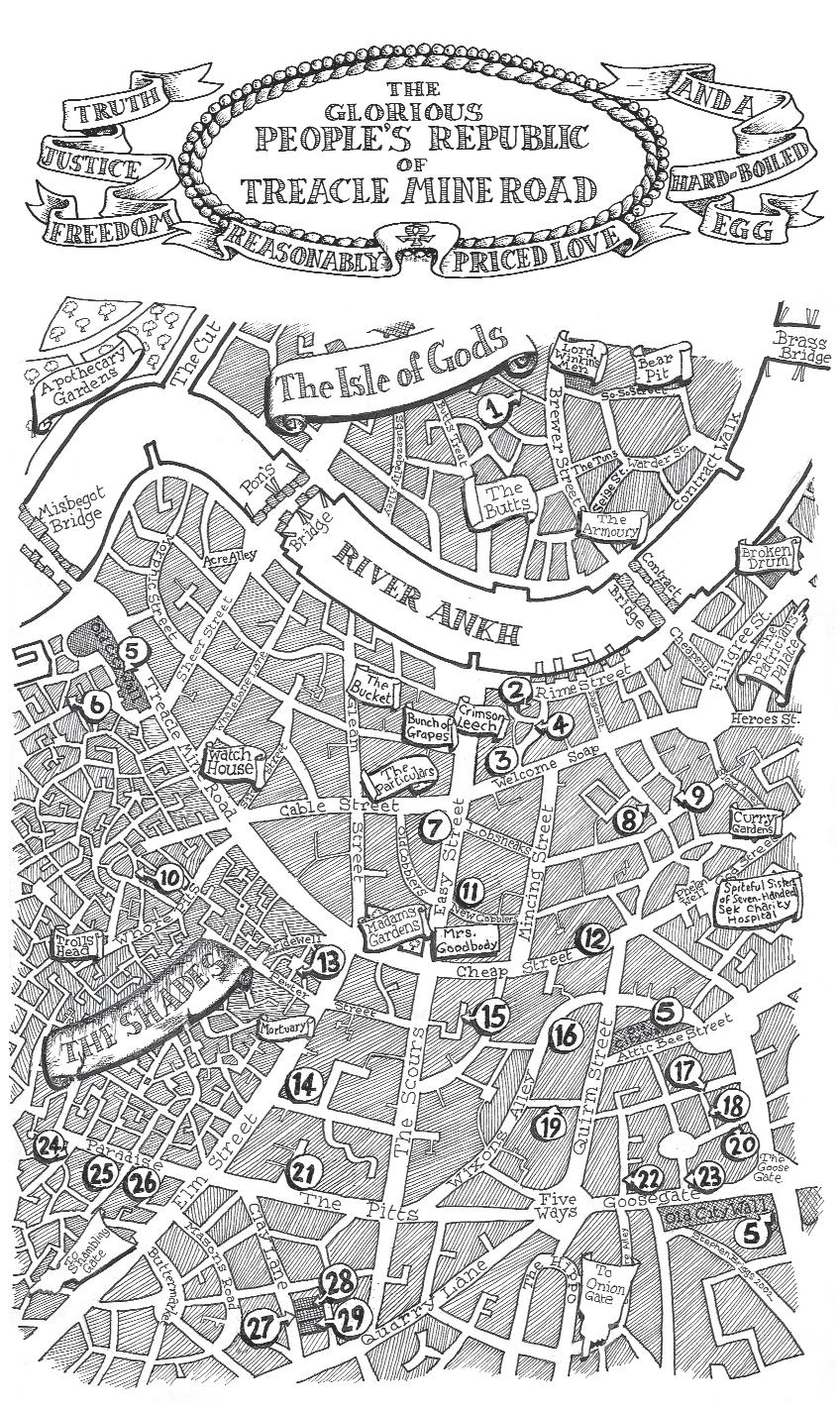
Sam Vimes sighed when he heard the scream, but he finished shaving before he did anything about it.
Then he put his jacket on and strolled out into the wonderful late spring morning. Birds sang in the trees, bees buzzed in the blossom. The sky was hazy, though, and thunderheads on the horizon threatened rain later. But, for now, the air was hot and heavy. And, in the old cesspit behind the gardener’s shed, a young man was treading water.
Well . . treading, anyway.
Vimes stood back a little way and lit a cigar. It probably wouldn’t be a good idea to employ a naked flame any nearer to the pit. The fall from the shed roof had broken the crust.
‘Good morning!’ he said cheerfully.
‘Good morning, your grace,’ said the industrious treadler.
The voice was higher pitched than Vimes expected and he realized that, most unusually, the young man in the pit was in fact a young woman. It wasn’t entirely unexpected – the Assassins’ Guild was aware that women were at least equal to their brothers when it came to inventive killing – but it nevertheless changed the situation somewhat.
‘I don’t believe we’ve met?’ said Vimes. ‘Although I see you know who I am. You are . ?’
‘Wiggs, sir,’ said the swimmer. ‘Jocasta Wiggs. Honoured to meet you, your grace.’
‘Wiggs, eh?’ said Vimes. ‘Famous family in the Guild. “Sir” will do, by the way. I think I once broke your father’s leg?’
‘Yes, sir. He asked to be remembered to you,’ said Jocasta.
‘You’re a bit young to be sent on this contract, aren’t you?’ said Vimes.
‘Not a contract, sir,’ said Jocasta, still paddling.
‘Come now, Miss Wiggs. The price on my head is at least—’
‘The Guild council put it in abeyance, sir,’ said the dogged swimmer. ‘You’re off the register. They’re not accepting contracts on you at present.’
‘Good grief, why not?’
‘Couldn’t say, sir,’ said Miss Wiggs. Her patient struggles had brought her to the edge of the pit, and now she was finding that the brickwork was in very good repair, quite slippery and offered no handholds. Vimes knew this, because he’d spent several hours one afternoon carefully arranging that this should be so.
‘So why were you sent, then?’
‘Miss Band sent me as an exercise,’ said Jocasta. ‘I say, these bricks really are jolly tricky, aren’t they?’
‘Yes,’ said Vimes, ‘they are. Have you been rude to Miss Band lately? Upset her in any way?’
‘Oh, no, your grace. But she did say I was getting over-confident, and would benefit from some advanced field work.’
‘Ah. I see.’ Vimes tried to recall Miss Alice Band, one of the Assassins’ Guild’s stricter teachers. She was, he’d heard, very hot on practical lessons.
‘So . . . she sent you to kill me, then?’ he said.
‘No, sir! It’s an exercise! I don’t even have any crossbow bolts! I just had to find a spot where I could get you in my sights and then report back!’
‘She’d believe you?’
‘Of course, sir,’ said Jocasta, looking rather hurt. ‘Guild honour, sir.’ Vimes took a deep breath. ‘You see, Miss Wiggs, quite a few of your chums have tried to kill me at home in recent years. As you might expect, I take a dim view of this.’
‘Easy to see why, sir,’ said Jocasta, in the voice of one who knows that their only hope of escaping from their present predicament is reliant on the goodwill of another person who has no pressing reason to have any.
‘And so you’d be amazed at the booby traps there are around the place,’ Vimes went on. ‘Some of them are pretty cunning, even if I say it myself.’
‘I certainly never expected the tiles on the shed to shift like that, sir.’
‘They’re on greased rails,’ said Vimes.
‘Well done, sir!’
‘And quite a few of the traps drop you into something deadly,’ said Vimes.
‘Lucky for me that I fell into this one, eh, sir?’
‘Oh, that one’s deadly too,’ said Vimes. ‘Eventually deadly.’ He sighed. He really wanted to discourage this sort of thing but . . . they’d put him off the register? It wasn’t that he’d liked being shot at by hooded figures in the temporary employ of his many and varied enemies, but he’d always looked at it as some kind of vote of confidence. It showed that he was annoying the rich and arrogant people who ought to be annoyed.
Besides, the Assassins’ Guild was easy to outwit. They had strict rules, which they followed quite honourably, and this was fine by Vimes, who, in certain practical areas, had no rules whatsoever.
Off the register, eh? The only other person not on it any more, it was rumoured, was Lord Vetinari, the Patrician. The Assassins understood the political game in the city better than anyone, and if they took you off the register it was because they felt your departure would not only spoil the game but also smash the board . . .
‘I’d be jolly grateful if you could pull me out, sir,’ said Jocasta.
‘What? Oh, yes. Sorry, got clean clothes on,’ said Vimes. ‘But when I get back to the house I’ll tell the butler to come down here with a ladder. How about that?’
‘Thank you very much, sir. Nice to have met you, sir.’
Vimes strolled back to the house. Off the register? Was he allowed to appeal? Perhaps they thought—
The scent rolled over him.
He looked up.
Overhead, a lilac tree was in bloom. He stared.
Damn! Damn! Damn! Every year he forgot. Well, no. He never forgot. He just put the memories away, like old silverware that you didn’t want to tarnish. And every year they came back, sharp and sparkling, and stabbed him in the heart. And today, of all days . . .
He reached up, and his hand trembled as he grasped a bloom and gently broke the stem. He sniffed at it. He stood for a moment, staring at nothing. And then he carried the sprig of lilac carefully back up to his dressing room.
Willikins had prepared the official uniform for today. Sam Vimes stared at it blankly, and then remembered. Watch Committee. Right. The battered old breastplate wouldn’t do, would it . . . Not for His Grace the Duke of Ankh, Commander of the City Watch, Sir Samuel Vimes. Lord Vetinari had been very definite about that, blast it.
Blast it all the more because, unfortunately, Sam Vimes could see the point. He hated the official uniform, but he represented a bit more than just himself these days. Sam Vimes had been able to turn up for meetings with grubby armour, and even Sir Samuel Vimes could generally contrive to find a way to stay in street uniform at all times, but a Duke . . . well, a Duke needed a bit of polish. A Duke couldn’t have the arse hanging out of his trousers when meeting foreign diplomats. Actually, even plain old Sam Vimes never had the arse hanging out of his trousers, either, but no one would have actually started a war if he had.
The plain old Sam Vimes had fought back. He got rid of most of the plumes and the stupid tights, and ended up with a dress uniform that at least looked as though its owner was male. But the helmet had gold decoration, and the bespoke armourers had made a new, gleaming breastplate with useless gold ornamentation on it. Sam Vimes felt like a class traitor every time he wore it. He hated being thought of as one of those people that wore stupid ornamental armour. It was gilt by association.
He twirled the sprig of lilac in his fingers, and smelled again the heady smell. Yes . . it hadn’t always been like this .
Someone had just spoken to him. He looked up.
‘What?’ he barked.
‘I enquired if her ladyship is well, your grace?’ said the butler, looking startled. ‘Are you feeling all right, your grace?’
‘What? Oh, yes. No. I’m fine. So is her ladyship, yes, thank you. I popped in before I went outside. Mrs Content is with her. She says it won’t be for a while.’
‘I have advised the kitchen to have plenty of hot water ready, your grace, nevertheless,’ said Willikins, helping Vimes on with the gilty breastplate.
‘Yes. Why do they need all that water, do you think?’
‘I couldn’t say, your grace,’ said Willikins. ‘Probably best not to enquire.’
Vimes nodded. Sybil had already made it quite clear, with gentle tact, that he was not required on this particular case. It had been, he had to admit, a bit of a relief.
He handed Willikins the sprig of lilac. The butler took it without comment, inserted it into a little silver tube of water that would keep it fresh for hours, and fixed it on to one of the breastplate straps.
‘Time moves on, doesn’t it, your grace,’ he said, dusting him down with a small brush.
Vimes took out his watch. ‘It certainly does. Look, I’ll drop in at the yard on my way to the palace, sign what needs signing, and I’ll be back as soon as possible, all right?’
Willikins gave him a look of almost unbutlery concern. ‘I’m sure her ladyship will be fine, your grace,’ he said. ‘Of course she is not, not—’
‘—young,’ said Vimes.
‘I would say she is richer in years than many other primigravidae,’ said Willikins smoothly. ‘But she is a well-built lady, if you don’t mind me saying so, and her family have traditionally had very little trouble in the childbirth department—’
‘Primi what?’
‘New mothers, your grace. I’m sure her ladyship would much rather know that you were running after miscreants than wearing a hole in the library carpet.’
‘I expect you’re right, Willikins. Er . . . oh, yes, there’s a young lady dogpaddling in the old cesspit, Willikins.’
‘Very good, your grace. I shall send the kitchen boy down there with a ladder directly. And a message to the Assassins’ Guild?’
‘Good idea. She’ll need clean clothes and a bath.’
‘I think, perhaps, the hose in the old scullery might be more appropriate, your grace? To start with, at least?’
‘Good point. See to it. And now I must be off.’
In the crowded main office of the Pseudopolis Yard Watch House, Sergeant Colon absent-mindedly adjusted the sprig of lilac that he’d stuck into his helmet like a plume.
‘They go very strange, Nobby,’ he said, leafing listlessly through the morning’s paperwork. ‘It’s a copper thing. Happened to me when I had kids. You get tough.’
‘What do you mean, tough?’ said Corporal Nobbs, possibly the best living demonstration that there was some smooth evolution between humans and animals.
‘We-ell,’ said Colon, leaning back in his chair. ‘It’s like . . . well, when you’re our age . . .’ He looked at Nobby, and hesitated. Nobby had been giving his age as ‘probably thirty-four’ for years; the Nobbs family were not good at keeping count.
‘I mean, when a man reaches . . . a certain age,’ he tried again, ‘he knows the world is never going to be perfect. He’s got used to it being a bit, a bit . . .’
‘Manky?’ Nobby suggested. Tucked behind his ear, in the place usually reserved for his cigarette, was another wilting lilac flower.
‘Exactly,’ said Colon. ‘Like, it’s never going to be perfect, so you just do the best you can, right? But when there’s a kid on the way, well, suddenly a man sees it different. He thinks: my kid’s going to have to grow up in this mess. Time to clean it up. Time to make it a Better World. He gets a bit . . . keen. Full of ginger. When he hears about Stronginthearm it’s going to be very hot around here for—’Morning, Mister Vimes!’
‘Talking about me, eh?’ said Vimes, striding past them as they jerked to attention. He had not in fact heard any of the conversation, but Sergeant Colon’s face could be read like a book and Vimes had learned it by heart years ago.
‘Just wondering if the happy event—’ Colon began, trailing after Vimes as he took the stairs two at a time.
‘It hasn’t,’ said Vimes shortly. He pushed open the door to his office. ‘ ’Morning, Carrot!’
Captain Carrot sprang to his feet and saluted. ‘ ’Morning, sir! Has Lady—’
‘No, Carrot. She has not. What’s been happening overnight?’
Carrot’s gaze went to the sprig of lilac, and back to Vimes’s face. ‘Nothing good, sir,’ he said. ‘Another officer killed.’
Vimes stopped dead. ‘Who?’ he demanded.
‘Sergeant Stronginthearm, sir. Killed in Treacle Mine Road. Carcer again.’
Vimes glanced at his watch. They had ten minutes to get to the palace. But time suddenly wasn’t important any more.
He sat down at his desk. ‘Witnesses?’
‘Three this time, sir.’
‘That many?’
‘All dwarfs. Stronginthearm wasn’t even on duty, sir. He’d signed off and was picking up a rat pie and chips from a shop and walked out straight into Carcer. The devil stabbed him in the neck and ran for it. He must’ve thought we’d found him.’
‘We’ve been looking for the man for weeks ! And he bumped into poor old Stronginthearm when all the dwarf was thinking of was his breakfast? Is Angua on the trail?’
‘Up to a point, sir,’ said Carrot awkwardly.
‘Why only up to a point?’
‘He – well, we assume it was Carcer – dropped an aniseed bomb in Sator Square. Almost pure oil.’
Vimes sighed. It was amazing how people adapted. The Watch had a werewolf. That news had got around, in an underground kind of way. And so the criminals had evolved to survive in a society where the law had a very sensitive nose. Scent bombs were the solution. They didn’t have to be that dramatic. You just dropped a little flask of pure peppermint or aniseed in the street where a lot of people would walk over it, and suddenly Sergeant Angua was facing a hundred, a thousand criss-crossing trails, and went to bed with a terrible headache.
He listened glumly as Carrot reported on men brought off leave or put on double shift, on informers pumped, pigeons stooled, grasses rustled, fingers held to the wind, ears put on the street. And he knew how little it all added up to. They still had fewer than a hundred men in the Watch, and that was including the canteen lady. There were a million people in the city, and a billion places to hide. Ankh-Morpork was built of bolt-holes. Besides, Carcer was a nightmare.
Vimes was used to the other kinds of nut jobs, the ones that acted quite normally right up to the point where they hauled off and smashed someone with a poker for blowing their nose noisily. But Carcer was different. He was in two minds, but instead of them being in conflict, they were in competition. He had a demon on both shoulders, urging one another on.
And yet . . . he smiled all the time, in a cheerful chirpy sort of way, and he acted like the kind of rascal who made a dodgy living selling gold watches that go green after a week. And he appeared to be convinced, utterly convinced, that he never did anything really wrong. He’d stand there amid the carnage, blood on his hands and stolen jewellery in his pocket, and with an expression of injured innocence declare, ‘Me? What did I do?’
And it was believable right up until you looked hard into those cheeky, smiling eyes, and saw, deep down, the demons looking back.
. . . But you mustn’t spend too much time looking at those eyes, because that’d mean you’d taken your eyes off his hands, and by now one of them held a knife.
It was hard for the average copper to deal with people like that. They expected people, when heavily outnumbered, to give in or try to deal or at least just stop moving. They didn’t expect people to kill for a five-dollar watch. (A hundred-dollar watch, now, that’d be different. This was Ankh-Morpork, after all.)
‘Was Stronginthearm married?’ he said.
‘No, sir. Lived in New Cobblers with his parents.’
Parents, thought Vimes. That made it worse.
‘Anyone been to tell them?’ he asked. ‘And don’t say it was Nobby.
We don’t want any repeat of that “bet you a dollar you’re the widow Jackson” nonsense.’
‘I went, sir. As soon as we got the news.’
‘Thank you. They took it badly?’
‘They took it . . . solemnly, sir.’
Vimes groaned. He could imagine the expressions.
‘I’ll write them the official letter,’ he said, pulling open his desk. ‘Get someone to take it round, will you? And say I’ll be over later. Perhaps this isn’t the time to—’ No, hold on, they were dwarfs, dwarfs weren’t bashful about money. ‘Forget that – say we’ll have all the details of his pension and so on. Died on duty, too. Well, near enough. That’s extra. It all adds up.’ He rummaged in his cupboards. ‘Where’s his file?’
‘Here, sir,’ said Carrot, handing it over smoothly. ‘We are due at the palace at ten, sir. Watch Committee. But I’m sure they’ll understand,’ he added, seeing Vimes’s face. ‘I’ll go and clean out Stronginthearm’s locker, sir, and I expect the lads’ll have a whipround for flowers and everything . . .’
Vimes pondered over a sheet of headed paper after the captain had gone. A file, he had to refer to a damn file. But there were so many coppers these days . . .
A whip-round for flowers. And a coffin. You look after your own. Sergeant Dickins had said that, a long time ago . . .
He wasn’t good with words, least of all ones written down, but after a few glances at the file to refresh his memory he wrote down the best he could think of.
And they were all good words and, more or less, they were the right ones. But in truth Stronginthearm was just a decent dwarf who’d been paid to be a copper. He’d joined up because, these days, joining the Watch was quite a good choice of career. The pay wasn’t bad, there was a worthwhile pension, there was a wonderful medical scheme if you had the nerve to submit to Igor’s ministrations in the cellar and, after a year or so, an Ankh-Morpork trained copper could leave the city and get a job in the Watches of the other cities on the plain with instant promotion. That was happening all the time. Sammies, they were called, even in towns that had never
Terry Pratchett
heard of Sam Vimes. He was just a little proud of that. ‘Sammies’ meant watchmen who could think without their lips moving, who didn’t take bribes – much, and then only at the level of beer and doughnuts, which even Vimes recognized as the grease that helps the wheels run smoothly – and were, on the whole, trustworthy. For a given value of ‘trust’, at least.
The sound of running feet indicated that Sergeant Detritus was bringing some of the latest trainees back from their morning run. He could hear the jody Detritus had taught them. Somehow, you could tell it was made up by a troll:
‘Now we sing dis stupid song! Sing it as we run along! Why we sing dis we don’t know! We can’t make der words rhyme prop’ly!’
‘Sound off!’
‘Sound off!’
‘Sound off!’
‘One! Two!’
‘Many! Lots!’
‘Er . . what?’
It still irked Vimes that the little training school in the old lemonade factory was turning out so many coppers who quit the city the moment their probation was up. But it had its advantages. There were Sammies almost as far as Uberwald now, all speeding up the local promotion ladder. It helped, knowing names, and knowing that those names had been taught to salute him. The ebb and flow of politics often meant that the local rulers weren’t talking to one another, but via the semaphore towers, the Sammies talked all the time.
He realized he was humming a different song under his breath. It was a tune he’d forgotten for years. It went with the lilac, scent and song together. He stopped, feeling guilty.
He was finishing the letter when there was a knock at the door.
‘Nearly done!’ he shouted.
‘It’th me, thur,’ said Constable Igor, pushing his head round the door, and then he added, ‘Igor, sir.’
‘Yes, Igor?’ said Vimes, wondering not for the first time why anyone with stitches all round his head needed to tell anyone who he was.*
‘I would just like to thay, sir, that I could have got young Thtronginthearm back on his feet, thur,’ said Igor, a shade reproachfully.
Vimes sighed. Igor’s face was full of concern, tinged with disappointment. He had been prevented from plying his . . . craft. He was naturally disappointed.
‘We’ve been through this, Igor. It’s not like sewing a leg back on. And dwarfs are dead set against that sort of thing.’
‘There’s nothing thupernatural about it, thur. I am a man of Natural Philothophy! And he was still warm when they brought him in—’
‘Those are the rules, Igor. Thanks all the same. We know your heart is in the right place—’
‘They are in the right places, sir,’ said Igor reproachfully.
‘That’s what I meant,’ Vimes said, without missing a beat, just as Igor never did.
‘Oh, very well, sir,’ said Igor, giving up. He paused, and then said: ‘How is her ladyship, sir?’
Vimes had been expecting this. It was a terrible thing for a mind to do, but his had already presented him with the idea of Igor and Sybil in the same sentence. Not that he disliked Igor. Quite the reverse. There were watchmen walking around the streets right now who wouldn’t have legs if it wasn’t for Igor’s genius with a needle. But—
‘Fine. She’s fine,’ he said abruptly.
‘Only I heard that Mrs Content was a bit worr—’
* The Igor employed by the Watch as forensic specialist and medical aide was quite young (in so far as you could tell with an Igor, since useful limbs and other organs were passed on among Igors as others might hand on a pocket watch) and very modern in his thinking. He had a DA haircut with extended quiff, wore crêpe soles and sometimes forgot to lisp.
‘Igor, there are some areas where . . . Look, do you know anything about . . . women and babies?’
‘Not in so many wordth, sir, but I find that once I’ve got someone on the slab and had a good, you know, rummage around, I can thort out most thingth—’
Vimes’s imagination actually shut down at this point.
‘Thank you, Igor,’ he managed, without his voice trembling, ‘but Mrs Content is a very experienced midwife.’
‘Jutht as you say, sir,’ said Igor, but doubt rode on the words.
‘And now I’ve got to go,’ said Vimes. ‘It’s going to be a long day.’
He ran down the stairs, tossed the letter to Sergeant Colon, nodded to Carrot and they set off at a fast walk for the palace.
After the door had shut one of the watchmen looked up from the desk where he’d been wrestling with a report and the effort of writing down, as policemen do, what ought to have happened.
‘Sarge?’
‘Yes, Corporal Ping?’
‘Why’re some of you wearing purple flowers, sarge?’
There was a subtle change in the atmosphere, a suction of sound caused by many pairs of ears listening intently. All the officers in the room had stopped writing.
‘I mean, I saw you and Reg and Nobby wearing ’em this time last year, and I wondered if we were all supposed to . . .’ Ping faltered. Sergeant Colon’s normally amiable eyes had narrowed and the message they were sending was: you’re on thin ice, lad, and it’s starting to creak . . .
‘I mean, my landlady’s got a garden and I could easily go and cut a—’ Ping went on, in an uncharacteristic attempt at suicide.
‘You’d wear the lilac today, would you?’ said Colon quietly.
‘I just meant that if you wanted me to I could go and—’
‘Were you there?’ said Colon, getting to his feet so fast that his chair fell over.
‘Steady, Fred,’ murmured Nobby.
‘I didn’t mean—’ Ping began. ‘I mean . . was I where, sarge?’
Colon leaned on the desk, bringing his round red face an inch away from Ping’s nose. ‘If you don’t know where there was, you
Night Watch
weren’t there,’ he said, in the same quiet voice. He stood up straight again. ‘Now me an’ Nobby has got a job to do,’ he said. ‘At ease, Ping. We are going out.’
‘Er . . .’
This was not being a good day for Corporal Ping.
‘Yes?’ said Colon.
‘Er . . . standing orders, sarge . . . you’re the ranking officer, you see, and I’m orderly officer for the day, I wouldn’t ask otherwise but . . if you’re going out, sarge, you’ve got to tell me where you’re going. Just in case anyone has to contact you, see? I got to write it down in the book. In pen and everything,’ he added.
‘You know what day it is, Ping?’ said Colon.
‘Er . . . twenty-fifth of May, sarge.’
‘And you know what that means, Ping?’
‘Er . . .’
‘It means,’ said Nobby, ‘that anyone important enough to ask where we’re going—’
‘—knows where we’ve gone,’ said Fred Colon. The door slammed behind them.
The cemetery of Small Gods was for the people who didn’t know what happened next. They didn’t know what they believed in or if there was life after death and, often, they didn’t know what hit them. They’d gone through life being amiably uncertain, until the ultimate certainty had claimed them at the last. Among the city’s bone orchards the cemetery was the equivalent of the drawer marked Misc, where people were interred in the glorious expectation of nothing very much.
Most of the Watch got buried there. Policemen, after a few years, found it hard enough to believe in people, let alone anyone they couldn’t see.
For once, it wasn’t raining. The breeze shook the sooty poplars around the wall, making them rustle.
‘We ought to have brought some flowers,’ said Colon, as they made their way through the long grass.
‘I could nick a few off some of the fresh graves, sarge,’ Nobby volunteered.
‘Not the kind of thing I want to hear you saying at this time, Nobby,’ said Colon severely.
‘Sorry, sarge.’
‘At a time like this a man ought to be thinking of his immortal soul viz ah viz the endless mighty river that is History. I should do that, if I was you, Nobby.’
‘Right, sarge. Will do. I see someone’s doing it already, sarge.’
Up against one wall, lilac trees were growing. That is, at some point in the past a lilac had been planted there, and had given rise, as lilac will, to hundreds of whippy suckers, so that what had once been one stem was now a thicket. Every branch was covered in pale mauve blooms.
The graves were still just visible in the tangled vegetation. In front of them stood Cut-Me-Own-Throat Dibbler, Ankh-Morpork’s least successful businessman, with a sprig of lilac in his hat.
He caught sight of the watchmen and nodded to them. They nodded back. All three stood looking down at the seven graves. Only one had been maintained. The marble headstone on that one was shiny and moss-free, the turf was clipped, the stone border was sparkling.
Moss had grown over the wooden markers of the other six, but it had been scraped off the central one, revealing the name:
JOHN KEEL
And carved underneath, by someone who had taken some pains, was:
A huge wreath of lilac flowers, bound with purple ribbon, had been placed on the grave. On top of it, tied round with another piece of purple ribbon, was an egg.
‘Mrs Palm and Mrs Battye and some of the girls were up here earlier,’ said Dibbler. ‘And of course Madam always makes sure there’s the egg.’
‘It’s nice, the way they always remember,’ said Sergeant Colon. The three stood in silence. They were not, on the whole, men
Night Watch
with a vocabulary designed for times like this. After a while, though, Nobby felt moved to speak.
‘He gave me a spoon once,’ he said, to the air in general.
‘Yeah, I know,’ said Colon.
‘My dad pinched it off me when he come out of prison, but it was my spoon,’ said Nobby persistently. ‘That means a lot to a kid, your own spoon.’
‘Come to that, he was the first person to make me a sergeant,’ said Colon. ‘Got busted again, of course, but I knew I could do it again then. He was a good copper.’
‘He bought a pie off me, first week I was starting out,’ said Dibbler. ‘Ate it all. Didn’t spit out anything.’
There was more silence.
After a while Sergeant Colon cleared his throat, a general signal to indicate that some sort of appropriate moment was now over. There was a general relaxation of muscles.
‘Y’know, we ought to come up here one day with a billhook and clear this lot up a bit,’ said the sergeant.
‘You always say that, sarge, every year,’ said Nobby as they walked away. ‘And we never do.’
‘If I had a dollar for every copper’s funeral I’ve attended up here,’ said Colon, ‘I’d have . . nineteen dollars and fifty pence.’
‘Fifty pence?’ said Nobby.
‘That was when Corporal Hildebiddle woke up just in time and banged on the lid,’ said Colon. ‘Before your time, o’course. Everyone said it was an amazin’ recovery.’
‘Mr Sergeant?’
The three men turned. Coming towards them in a high-speed sidle was the black-clad, skinny figure of Legitimate First, the cemetery’s resident gravedigger.
Colon sighed. ‘Yes, Leggie?’ he said.
‘Good morrow, sweet—’ the gravedigger began, but Sergeant Colon waved a finger at him.
‘Stop that right now,’ he said. ‘You know you’ve been warned before. None of that “comic gravedigger” stuff. It’s not funny and it’s not clever. Just say what you’ve got to say. No silly bits.’